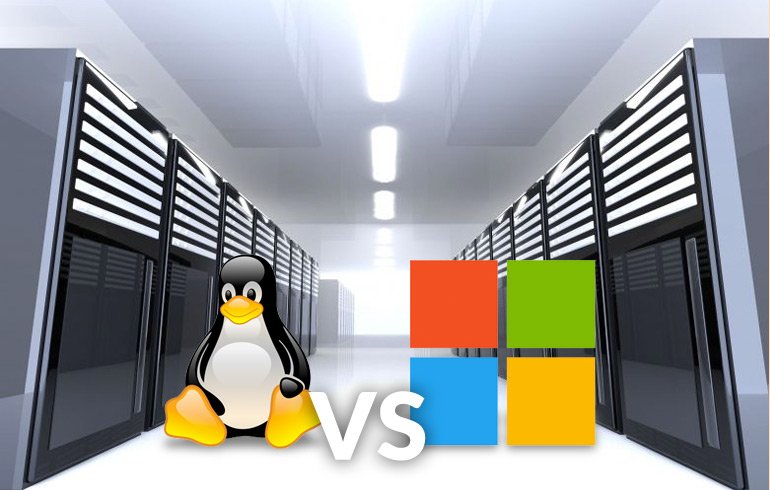The Windows vs Linux servers debate seems to have a clear winner. Linux servers are much cheaper, more flexible, and perform as well as their Windows counterparts. But if all of it is true, why do Windows servers still exist? Why do people pay quite a bit of money to host their websites on them?
It turns out that the situation is a bit more complicated than the choice between a cheap and expensive service.
Windows Vs. Linux Servers: Which Is Best?
1. Compatibility and supported platforms
The most important thing to remember is that you have to choose a hosting server OS compatible with your chosen platform. They are not the same for Windows and Linux servers. Windows servers support MSSQL, ASP, .NET, and Microsoft Access. Linux is your go-to platform if you use PHP and MySQL (think WordPress, phpBB, and Zen Cart).
Note that the operations system your computers use has no bearing on the OS you’ll need for your server. All hosting servers are compatible with a wide range of software.
Bear in mind that some solutions you might want to add to your website/app for enhancement can be compatible with a single type of server only. Think through these matters before making your final decision.
2. Ease (or complexity) of use
Linux is an open source system compatible with a multitude of solutions. But in order to make use of this compatibility, you’ll need to work very hard. For a person whose experience with computers is limited to using Windows on their own PC, setting up and managing a website on a Linux server will be extremely hard.
The good news is that you can hire someone else to do this for you. The host itself can take care of the majority of ‘technical’ issues. You can check how good and reliable the service is in this regard by studying hosting reviews. Current website building platforms, like WordPress also offer easy-to-use instructions and helpful tips.
However, if the simplicity of management and building is are important for you, choosing Windows servers will be best. The .NET framework is easier to work with by default.
On the other hand, simple tools, like cPanel are very user-friendly and compatible with Linux.
3. Corporate solutions support
There usually isn’t any Windows vs. Linux servers debate for big corporations, but not because they are rich enough to afford Windows. The matter here is that the most popular corporate software solutions are developed by Microsoft. As a result, they work with Windows servers and offer great additional features with them. For example, you can turn a Windows server to a Sharepoint.
Many of the best corporate solutions are simply unavailable for Linux servers. Creating your own will take time and a major investment, so big businesses usually choose to run with Windows.
4. Development and database flexibility
While Windows servers are great for existing great systems, they aren’t the best environment for creative development. If you want your website to be original and plan to add new features to it constantly, your best choice is Linux.
It’s true that only skilled developers will be able to make the most of this system. However, if you’ve got the skill (or if you hire someone who does), the level of website development and customization will be limitless with Linux. Windows, on the other hand, severely restricts the options and databases you can work with. All of the solutions you can find there are top-quality, but they are also all you can get.
Windows Vs. Linux Servers: Conclusion
Both Windows and Linux are great systems and servers that run on them are reliable and efficient. However, they are completely different and have different applications. In order to choose the system that is best for you, consider your exact needs, not the cost of the service package.



